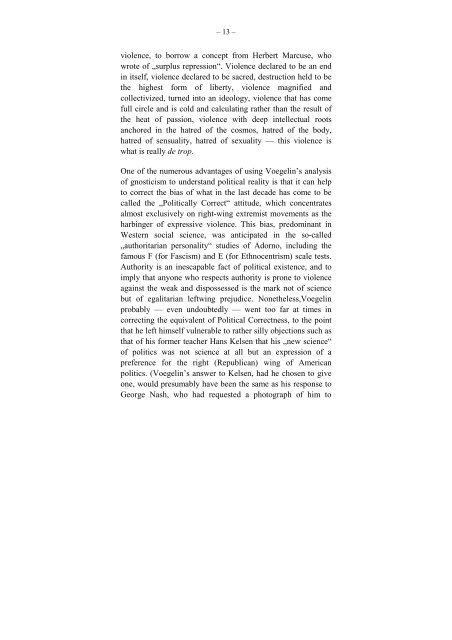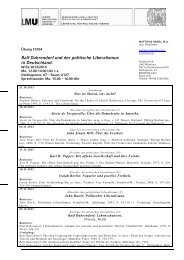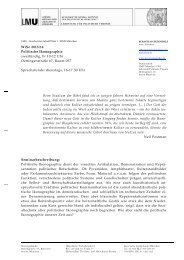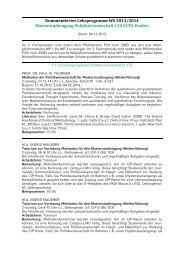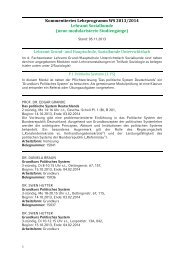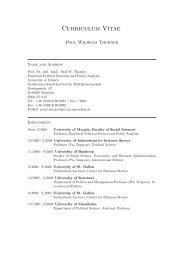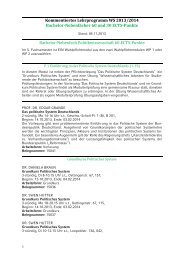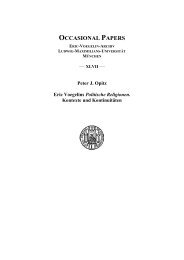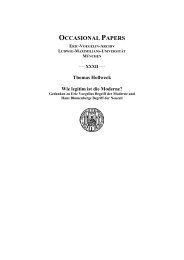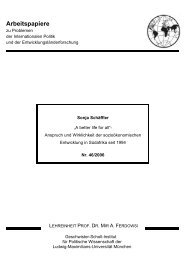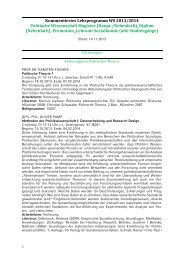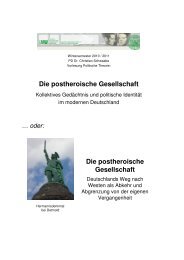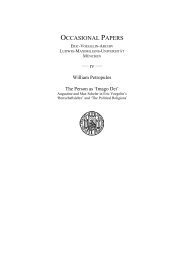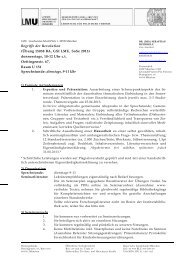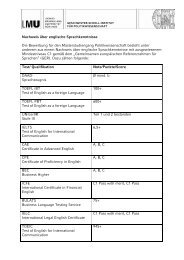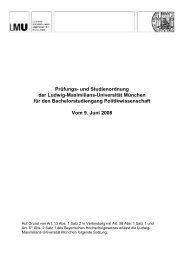Eric Voegelin.pdf - Geschwister-Scholl-Institut für Politikwissenschaft
Eric Voegelin.pdf - Geschwister-Scholl-Institut für Politikwissenschaft
Eric Voegelin.pdf - Geschwister-Scholl-Institut für Politikwissenschaft
Create successful ePaper yourself
Turn your PDF publications into a flip-book with our unique Google optimized e-Paper software.
– 13 –<br />
violence, to borrow a concept from Herbert Marcuse, who<br />
wrote of „surplus repression“. Violence declared to be an end<br />
in itself, violence declared to be sacred, destruction held to be<br />
the highest form of liberty, violence magnified and<br />
collectivized, turned into an ideology, violence that has come<br />
full circle and is cold and calculating rather than the result of<br />
the heat of passion, violence with deep intellectual roots<br />
anchored in the hatred of the cosmos, hatred of the body,<br />
hatred of sensuality, hatred of sexuality — this violence is<br />
what is really de trop.<br />
One of the numerous advantages of using <strong>Voegelin</strong>’s analysis<br />
of gnosticism to understand political reality is that it can help<br />
to correct the bias of what in the last decade has come to be<br />
called the „Politically Correct“ attitude, which concentrates<br />
almost exclusively on right-wing extremist movements as the<br />
harbinger of expressive violence. This bias, predominant in<br />
Western social science, was anticipated in the so-called<br />
„authoritarian personality“ studies of Adorno, including the<br />
famous F (for Fascism) and E (for Ethnocentrism) scale tests.<br />
Authority is an inescapable fact of political existence, and to<br />
imply that anyone who respects authority is prone to violence<br />
against the weak and dispossessed is the mark not of science<br />
but of egalitarian leftwing prejudice. Nonetheless,<strong>Voegelin</strong><br />
probably — even undoubtedly — went too far at times in<br />
correcting the equivalent of Political Correctness, to the point<br />
that he left himself vulnerable to rather silly objections such as<br />
that of his former teacher Hans Kelsen that his „new science“<br />
of politics was not science at all but an expression of a<br />
preference for the right (Republican) wing of American<br />
politics. (<strong>Voegelin</strong>’s answer to Kelsen, had he chosen to give<br />
one, would presumably have been the same as his response to<br />
George Nash, who had requested a photograph of him to


